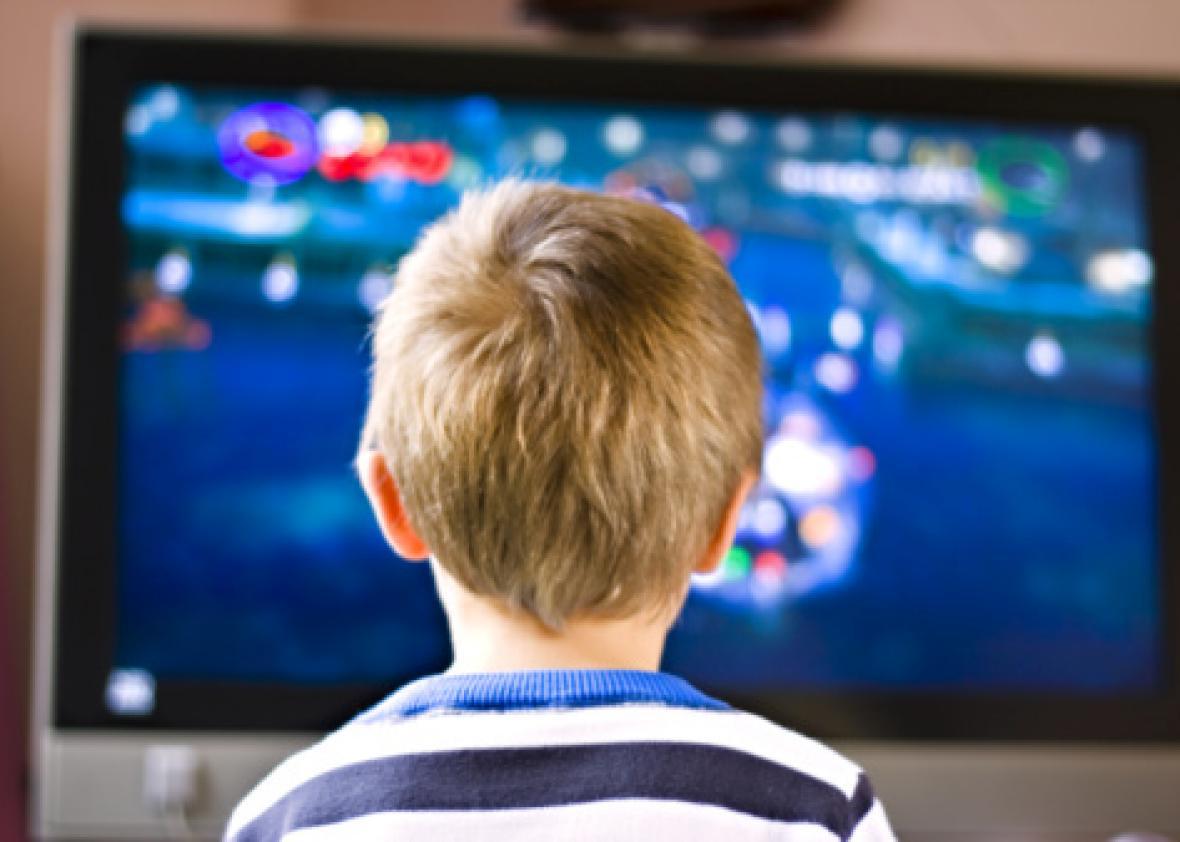As with so many hot-button issues in modern parenting, the controversy surrounding screen time often has more to do with mothers than with children. There is no scientific evidence that watching TV or playing with tablets is inherently bad for children over 2. (And maybe not even for those under 2.) Nevertheless, many mothers speak about letting their children stare at screens in either conspiratorial or resigned tones, the unspoken message being: I’m just not a great mom. Other mothers, like Mutha magazine’s Katie Tastrom, avoid talking about screen time with other parents altogether, as it’s the only way to avoid the alternating layers of sanctimony and guilt that often tarnish such exchanges.*
In a recent essay on JSTOR Daily, technology writer Alexandra Samuel takes aim at screen time as boogeyman, making the case that its demonization has its roots in a not-always-conscious anti-feminist bias. Samuel talks about the undeniable convenience of television and gadgets for parents who sometimes need a break to make dinner; take a work call; or, heaven forbid, just relax. She then goes on to point out that, historically speaking, innovations that give mothers more autonomy and access to the public sphere have always been met with suspicion. “[O]ur anxiety about making mothers’ work easier is rooted in our profound reservations about liberating women from the demands of the home,” Samuel writes.
Samuel makes a compelling case that the taboo against screen time is sexist, and I would add that there’s probably a classist element, too. It’s far easier to have children who never watch television if you’re rich enough to afford the help that ensures that you never need to rely on an electronic babysitter. If you’re a single mom or can’t afford a nanny, letting your kids play with your phone or watch a TV show can be the only way to buy yourself time to work, run errands, and do chores.
Luckily for moms both poor and rich, the American Academy of Pediatrics says one to two hours of “entertainment” screen time is a perfectly acceptable amount for children over 2. For children under 2, the academy is currently working on updating its guidelines from recommending no screen time to a policy that takes into account the evolution in computing in recent years. There’s no question that excessive screen time can have negative consequences for children (though the research isn’t as conclusive as often presented), but no experts working on this issue say the answer is to never let your children watch television or play on tablets. As Steven Gortmaker, a Harvard professor of health sociology who has been studying screen time since the 1980s, has explained, the goal isn’t “to get rid of the technology but to lower the dose and set limits.”
But research, shmesearch: The controversy and shame surrounding screen time isn’t really about its potential negative consequences but the ridiculously high expectations surrounding motherhood. Those are what moms should be debating and resisting—maybe even while their kids are tuned into Nickelodeon.
Correction, May 20, 2016: This post originally misspelled Katie Tastrom’s last name.
